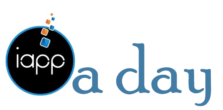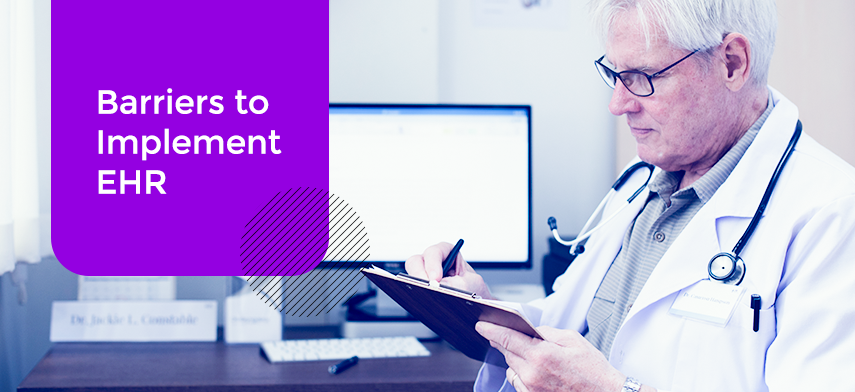Electronic Health Records (EHRs) are at the centre of the digital transformation that is taking place in the healthcare sector. EHRs offer a comprehensive electronic record of a patient’s medical history, encompassing diagnoses, medications, allergies, immunizations, lab results, and imaging reports. This vast trove of data holds immense potential for improving healthcare delivery, research, and public health initiatives.
However, unlocking the true power of EHR data requires skilled professionals who can analyze, interpret, and translate it into actionable insights. This is where data analysts and data scientists come into play. By equipping themselves with the right skillsets through a data analyst course or a data science course in Mumbai, individuals can become crucial assets in tackling various healthcare challenges using EHR data.
Unleashing the Potential of EHR Data Analysis in Healthcare
EHR data analysis offers a multitude of benefits for the healthcare industry. It can have a major effect in the following important areas:
- Improved patient care: EHR data analysis may help healthcare clinicians make better-educated clinical decisions, tailor treatment regimens, and spot possible dangers early on by giving them a comprehensive picture of a patient’s medical history.
- Enhanced disease prevention and management: Analyzing historical trends and patterns within EHR data can help predict disease outbreaks, identify high-risk populations, and develop targeted preventive measures.
- Streamlined healthcare operations: EHR data analysis can streamline administrative processes, optimize resource allocation, and improve healthcare cost management.
- Advanced research and development: EHR data analysis can fuel groundbreaking research in various fields, leading to the development of new diagnostic tools, personalized medicine approaches, and more effective treatments.
- Public health surveillance: By analyzing large datasets of EHR data, public health officials can gain valuable insights into the spread of infectious diseases, monitor the effectiveness of vaccination programs, and formulate effective public health interventions.
Challenges in Harnessing the Power of EHR Data
Despite its immense potential, utilizing EHR data for healthcare advancements comes with certain challenges:
- Data quality and standardization: Inconsistent coding practices, missing information, and variations in data formats across different EHR systems can hinder the quality and usefulness of data analysis.
- Data privacy and security: EHR data contains highly sensitive patient information, necessitating robust data security protocols and strict adherence to patient privacy regulations.
- Interoperability limitations: Lack of interoperability between different EHR systems can make it difficult to share data seamlessly, hindering comprehensive data analysis.
- Workforce skills gap: To extract useful insights from EHR data, the healthcare sector lacks qualified personnel versed in data science and analysis methodologies.
Equipping Yourself: The Role of Data Analysts and Data Scientists
Data analysts and data scientists play a critical role in bridging the gap between raw EHR data and actionable healthcare solutions. Data analyst courses equip individuals with the skills to clean, organize, and analyze healthcare data, identify trends and patterns, and communicate findings effectively.
Data science courses in Mumbai, on the other hand, delve deeper into advanced statistical modeling, machine learning algorithms, and data visualization techniques. These skills empower data scientists to develop predictive models, create sophisticated data pipelines, and build applications that can transform healthcare delivery.
By acquiring these skillsets, data analysts and data scientists can contribute significantly to the following aspects of EHR data analysis in healthcare:
- Data cleaning and pre-processing: Ensuring data quality through data cleaning, normalization, and standardization is crucial for accurate analysis.
- Exploratory data analysis: Uncovering trends, patterns, and relationships within EHR data sets the foundation for further exploration and hypothesis generation.
- Statistical modeling and machine learning: Building predictive models to identify high-risk patients, forecast disease outbreaks, and optimize healthcare resource allocation.
- Data visualization: Creating clear and compelling data visualizations to communicate complex findings to healthcare professionals and stakeholders.
Exploring Career Opportunities in Healthcare Data Analysis
There is an increasing need for qualified individuals with the ability to evaluate and decipher EHR data. Data analyst courses and data science courses in Mumbai can equip you for various exciting career opportunities in healthcare data analysis, including:
- Healthcare Data Analyst: Produce reports, find trends and patterns in big EHR data sets, and enhance clinical decision-making and healthcare operations.
- Clinical Data Analyst: Collaborate with healthcare providers to analyze patient data for clinical research, drug development, and quality improvement initiatives.
- Public Health Data Analyst: Analyze EHR data to monitor disease outbreaks, identify high-risk populations, and inform public health interventions.
- Health Data Scientist: Create advanced machine learning algorithms, statistical models, and data visualization tools to glean more insights from EHR data and spur innovation in healthcare delivery.
- Healthcare Informatics Specialist: Ensure the effective implementation and utilization of EHR systems within healthcare organizations while maintaining data quality and security.
These are but a few illustrations of how the field of healthcare data analysis is always changing. You may build yourself a fulfilling and significant career path in this fast-paced profession if you have the necessary skill set and are passionate about using data to improve healthcare.
Choosing the Right Data Analyst or Data Science Course in Mumbai
With the growing demand for data analysis expertise in healthcare, numerous data analyst courses and data science courses in Mumbai are available. Here are some factors to consider when choosing the right course for you:
- Course curriculum: Ensure the curriculum covers essential topics relevant to healthcare data analysis, such as medical terminology, healthcare data standards, data quality methodologies, statistical analysis techniques, and data visualization tools.
- Faculty expertise: Look for courses taught by experienced professionals with strong backgrounds in data analysis, data science, and healthcare.
- Hands-on learning: Opt for courses that offer practical experience through real-world case studies and projects that simulate healthcare data analysis scenarios.
- Career support: Inquire about career support services offered by the course provider, such as resume writing workshops, interview preparation guidance, and industry networking opportunities.
Conclusion: Harnessing the Power of Data for a Healthier Future
EHR data analysis holds immense potential for transforming healthcare. By equipping yourself with the necessary skills and knowledge through data analytics course in mumbai or data science courses in Mumbai, you can become a valuable asset in this rapidly evolving field. As the healthcare industry embraces data-driven decision making, skilled data analysts and data scientists will be at the forefront of this critical transformation, paving the way for a future where healthcare is more personalized, efficient, and effective for all.
Business Name: ExcelR- Data Science, Data Analytics, Business Analyst Course Training Mumbai
Address: Unit no. 302, 03rd Floor, Ashok Premises, Old Nagardas Rd, Nicolas Wadi Rd, Mogra Village, Gundavali Gaothan, Andheri E, Mumbai, Maharashtra 400069, Phone: 09108238354, Email: [email protected].

